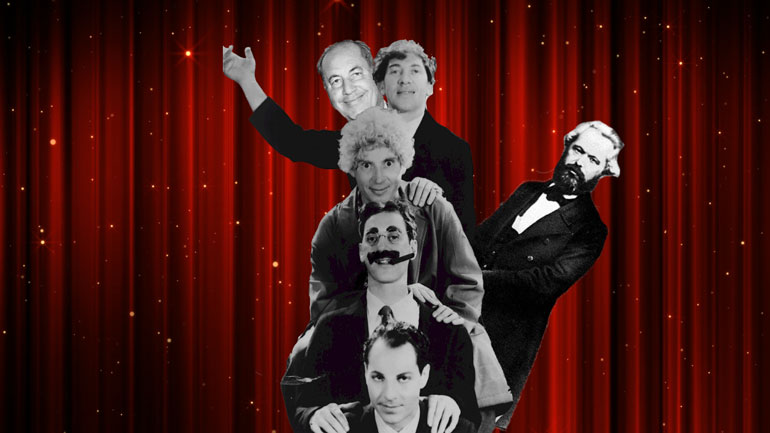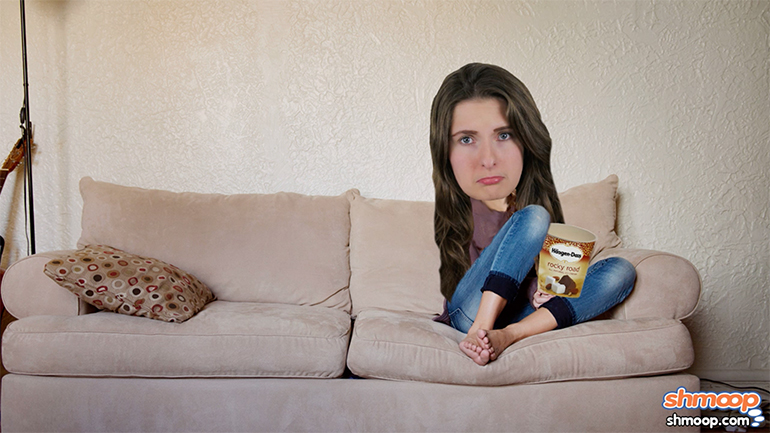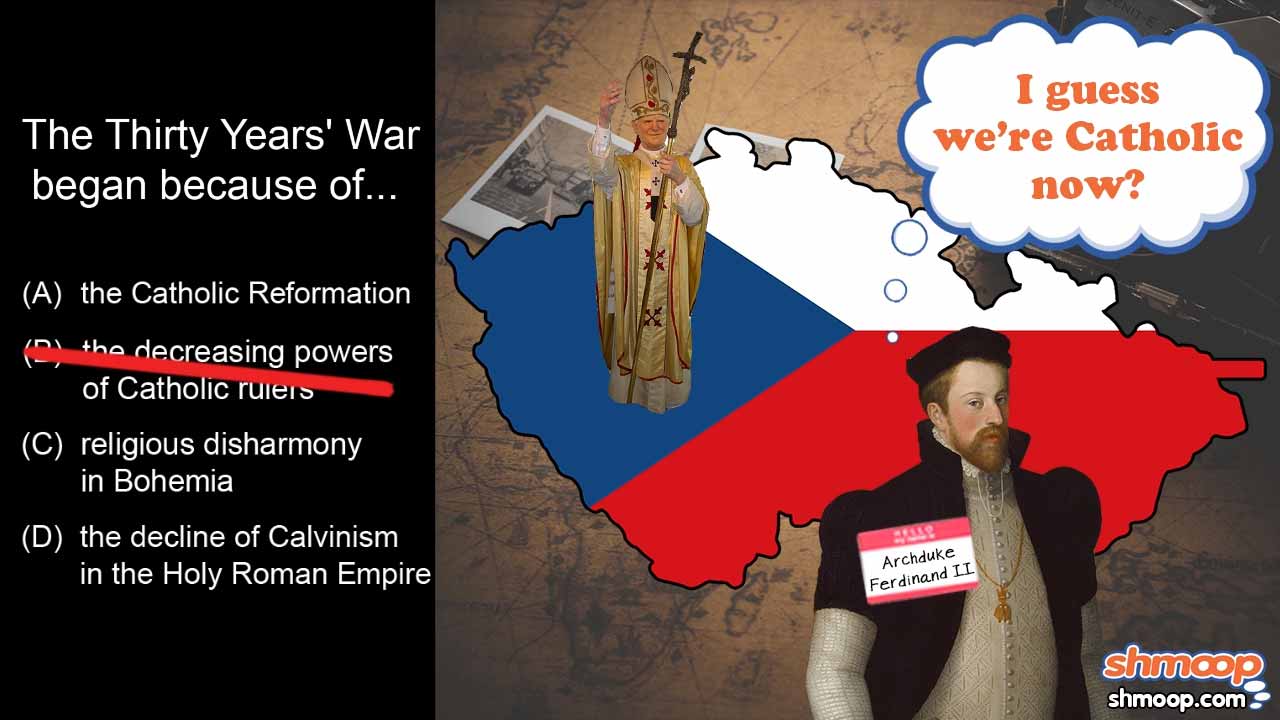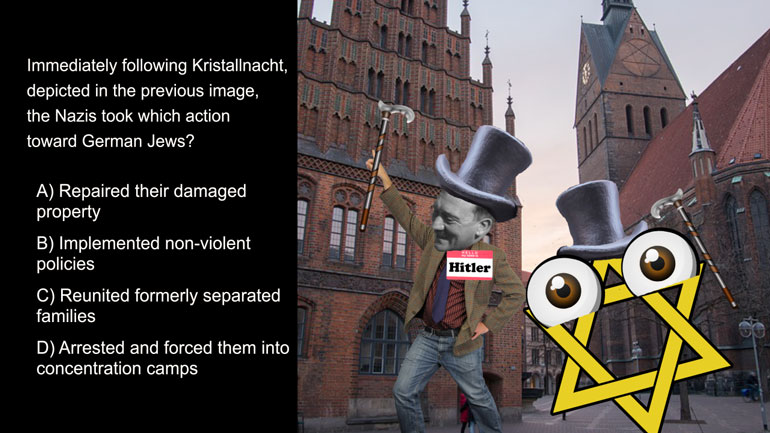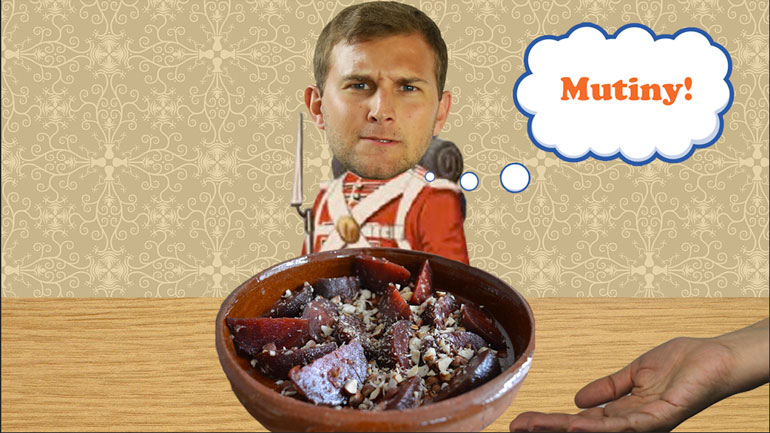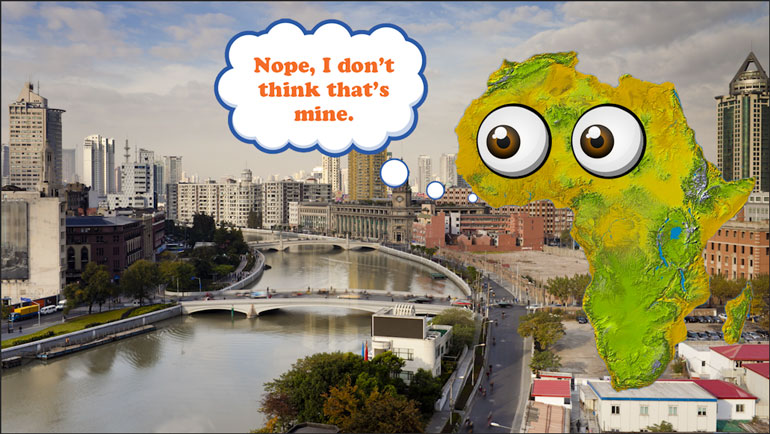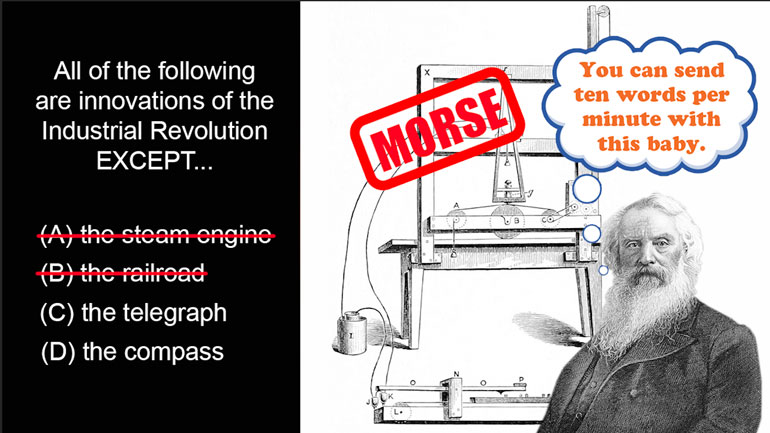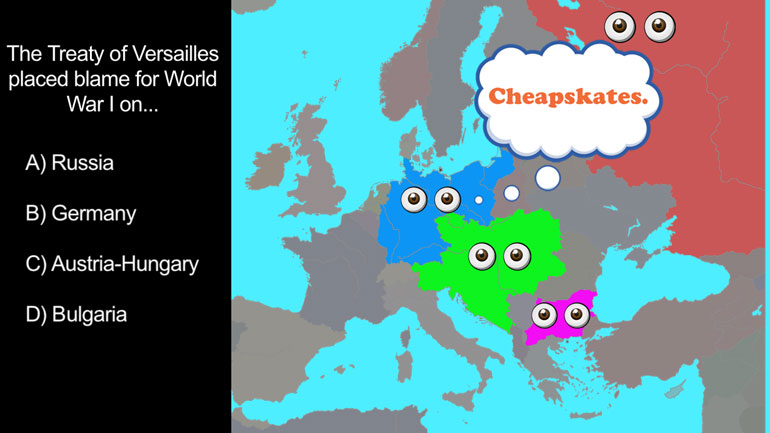ShmoopTube
Where Monty Python meets your 10th grade teacher.
Search Thousands of Shmoop Videos
Historical Causation Videos 8 videos
AP European History 1.4 Period 3: 1815-1914. As evidenced through the passage above, Karl Marx was a passionate leader and is considered the father...
AP European History 2.2 Period 1: 1450-1648. The man portrayed in the image was previously motivated to tack the Ninety-five Theses on the doo...
AP European History Period 1: 1450-1648 Drill 2, Problem 1. As a result of the meeting in the image, which of the following occurred?
AP World History 3.1 Industrialization and Global Integration, c. 1750 to c. 1900 234 Views
Share It!
Description:
AP World History 3.1 Industrialization and Global Integration, c. 1750 to c. 1900. The 1869 construction of which important canal drastically changed the face of imperialism in Africa?
Transcript
- 00:00
Thank you We sneak in and here's your smoke to
- 00:04
george brought to you by the face of imperialism Which
- 00:08
plan to guess Probably looks like you just sucked on
- 00:10
a lemon All right here's a question eighteen Sixty nine
- 00:13
Construction of which important canal drastically changed the face of
Full Transcript
- 00:17
imperialism in africa and hear the answer time and a
- 00:21
mock Now erica now sue as grand All right well
- 00:25
this question seems like a history question It's really Just
- 00:27
a geography question in disguise If we pull up a
- 00:30
world map we can pinpoint a few of these canals
- 00:33
So let's start with a the panama canal call is
- 00:36
crazy but if we had to guess and location of
- 00:37
the panama canal we probably pinpointed somewhere in panama So
- 00:42
who were wild and crazy over here It's much next
- 00:44
comes up the erie canal which eerie as it may
- 00:48
be sorry couldn't resist is not in fact in africa
- 00:52
it's actually in new york way we could eliminate option
- 00:55
b on while we're on the topic of the eerie
- 00:57
in the strange it would be pretty strange tohave the
- 01:00
ever so chinese sounding grand canal of say zhu smack
- 01:04
dab in africa which is why the ever so chinese
- 01:07
sounding canal is right in the ever so chinese china
- 01:10
That leaves us with c the suez Well the suez
- 01:13
is in fact in africa and was important to imperialism
- 01:17
after an open in eighteen sixty nine provided a way
- 01:19
of travel from the mediterranean sea into the red sea
- 01:22
allowing europeans that move around africa with relative ease and
- 01:26
likely d souring that imperialist face just a little bit
- 01:29
You know what they say when life gives you lemon
- 01:32
build a canal and change the face of imperialism in 00:01:34.853 --> [endTime] africa or something like that
Related Videos
AP World History 1.2 Industrialization and Global Integration, c. 1750 to c. 1900. All of the following are innovations of the Industrial Revolutio...
AP World History 2.5 Industrialization and Global Integration, c. 1750 to c.1900. What was the relationship between abolitionist movements and wome...
AP World History 4.3 Industrialization and Global Integration, c. 1750 to c. 1900. What was the immediate cause of the First Sino-Japanese War?
AP World History 3.2 Industrialization and Global Integration, c. 1750 to c. 1900. The Sepoy Mutiny resulted in...what?
AP World History 1.1 Accelerating Global Change and Realignments, c. 1900 to Present. The Treaty of Versailles placed blame for World War I on...wh...
